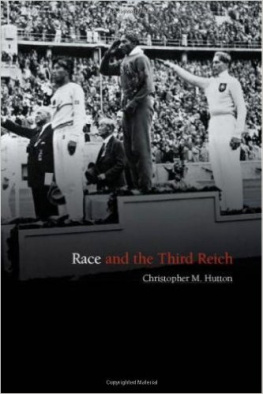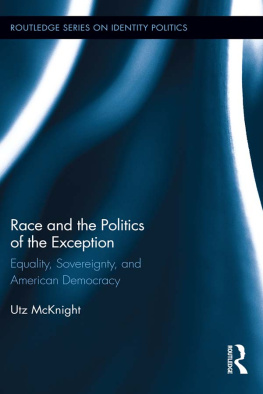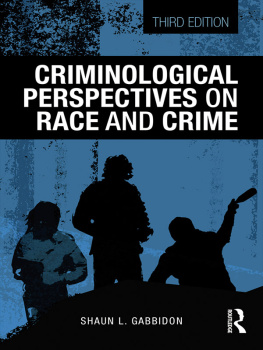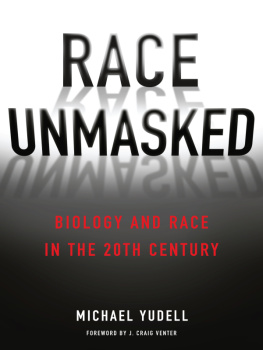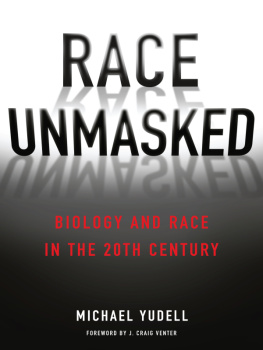Race and the Third Reich
Linguistics, Racial Anthropology and Genetics in the Dialectic of Volk
by
Christopher M. Hutton
2005

~ All Your Books Are Belong to Us !!! ~
http://inclibuql666c5c4.onion
Race and the Third Reich
Linguistics, Racial Anthropology and Genetics in the Dialectic of Volk
Copyright 2005 Christopher M. Hutton
First published in 2005 by Polity Press
Language: English
TODO: The references have only been cleaned up partially.
ISBN: 0-7456-3176-2
ISBN: 0-7456-3177-0 (pb)
ISBN-13: 978-0745631776
Race and the Third Reich aims to set out the key concepts, debates and controversies that marked the academic study of race in Nazi Germany. It looks in particular at the discipline of racial anthropology and its relationship to linguistics and human biology.
Christopher Hutton identifies the central figures involved in the study of race during the Nazi regime, and traces continuities and discontinuities between Nazism and the study of human diversity in the Western tradition. Whilst Nazi race theory is commonly associated with the idea of a superior "Aryan race" and with the idealization of the Nordic ideal of blond hair, blue eyes and a "long-skull", Nazi race theorists, in common with their colleagues outside Germany, without exception denied the existence of an Aryan race. After 1935 official publications were at pains to stress that the term "Aryan" belonged to linguistics and was not a racial category at all. Under the influence of Mendelian genetics, racial anthropologists concluded that there was no necessary link between ideal physical appearance and ideal racial character. In the course of the Third Reich, racial anthropology was marginalized in favour of the rising science of human genetics. However, racial anthropologists played a key role in the crimes of the Nazi state by defining Jews and others as racial outsiders to be excluded at all costs from the body of the German Volk.
Anyone studying the Third Reich or who is interested in race theory will find this a fascinating, informative and accessible study.
Contents
Acknowledgements
I would like to thank the following for their help and encouragement in a variety of ways (the usual disclaimer applies): Barbara Bader, Dominic Blaettler, Kingsley Bolton, Ellis Cashmore, Dafna Clifford, Paul Dennis, Frank Dikotter, Achim Mock, John Myhill, Lefteris Roussos, Gerd Simon, Sally-Ann Spencer, formerly of Polity Press, Jutta Strauss and my colleagues in the Department of English at the University of Hong Kong. Julia Kuehn was an excellent research assistant during the nal stages of the writing. Grant Evans offered comments on an earlier draft and gave numerous suggestions for further reading. My gratitude goes to Bill Marshall for inviting me to present a paper on this topic at Glasgow University, and to Patrick Sriot of the University of Lausanne for an invitation to the colloquium: Discourse on language under authoritarian regimes (October 2003). I am grateful to Andrea Drugan of Polity Press for her patience and advice during the writing of this book, and to the staff of the following institutions: the Library of the University of Hong Kong, in particular the Interlibrary Loan Department, the British Library, the Wiener Library, London, the Wellcome Library for the History and Understanding of Medicine, London, the Staatsbibliothek zu Berlin, the Bundesarchiv, Berlin-Lichterfelde, the Zentrum fur Antisemitismusforschung, Berlin. Two anonymous reviewers provided praise and criticism respectively. My special thanks go to Louisa for her love and support throughout.
1. Introduction
This book is intended to give an introduction to the major questions addressed in the study of race in Nazi Germany, and to assess their place within its evolving intellectual and ideological landscape. It offers neither institutional history nor detailed biographies of the participants. What is of particular concern here are points of tension, controversy and uncertainty, both among academic theorists of race and between academics and the political authorities. The focus is on the politically and intellectually central concept of Volk (people) and on competing understandings of German identity. This work offers just one particular path out of many through the maze of the Third Reich, and is written with the intention of informing debate about the relationships between race theory, National Socialism and wider trends in European thought. I have focused on those areas where in my View the received popular view is misleading, and have not attempted to summarize the massive scholarly literature on the institutional basis and implementation of the Final Solution and other crimes against humanity committed by the Nazi regime.
Nazism as an ideological system was both dynamic and contentious. There was no single centre of power, and no single gure who determined the political correctness of a particular intellectual direction. National Socialist Germany did not see the rise of a new, clearly identiable orthodoxy, as the major theoretical positions on race were staked out long before the Nazi seizure of power in 1933. This is not to say that there were no intellectual changes or developments between 1933 and 1945, but these changes tended to take the form of the neutralization or marginalization of particular schools or groups of academics, and the rise of others.
The initial years of the Nazi regime saw intellectuals from many disciplines making bids for a political, social or cultural role, and seeking the patronage of the Party and state with the intention of completing the political revolution of 1933 with an intellectual and ideological one. The mobilization of academic theory involved pulling down the barriers between academic research and life, and between humanities, social science and natural science. This was an attack on narrow specialization in favour of a holistic or ganzheitlich approach to knowledge, and reected an ethnocentric suspicion of academic endeavour as an international enterprise. For example, Alfred Rosenberg (1893-1946), ofcial ideologue of the National Socialist Workers Party (NSDAP), was associated with Nordicism, racial mysticism and a holistic approach to knowledge (Rosenberg 1939). However, revolutionary ideological projects were ultimately frustrated by inertia in the system and the pragmatic orientation of the state.There was in any case no consensus about the institution or structures that should replace the socially and politically elitist, conservative-humanistic university and its traditional academic division of labour (Krieck 1932; Rein 1933; Paletschek 2001). Heinrich Himmlers (1900-1945) academic organization,Ancestral Heritage (Ahnenerbe), steadily gained ground against Rosenberg, and evolved away from cultic Germanophilia towards an embrace of mainstream science.
Nazi intellectual policy was caught between suspicion of self-appointed spiritual advisors to the movement and impatience with the apolitical aloofness of the professoriate. True believers who hoped to nd in the Nazi revolution the triumph of their particular ideology were often disappointed by the direction of policy or the ruthlessly pragmatic nature of the regime. Bureaucrats such as Walter Gross (1904-1945) of the Race Policy Ofce recognized that there was a benet to be obtained from the promotion of scientic researchers who were loyal to the National Socialist cause without being Nazi activists or ideologues. Gross expressed this view in a letter to the Dean of Medicine at the University of Frankfurt in reference to the appointment of the apolitical geneticist Otmar Freiherr von Verschuer. Verschuers work, said Gross, could contribute to the strengthening of the scientic foundations of the National Socialist doctrine, as well as having propagandistic value (Volklein 1999: 75-6).The apolitical scholar who was loyal to the regime, without seeking to dene its ideological direction, frequently prospered, while self-promoting ideologues were often close to the centres of power only for short periods (Sieg 2001: 258). In many cases, the theorists and scholars who gained the upper hand during the Third Reich were able to carry that dominance over into the academic system of the German Federal Republic. Ash (1999: 287) talks of constructed continuities in scholarly careers that spanned the Weimar era, the Nazi state and the postwar occupation zones which became the German Federal Republic and the German Democratic Republic.

